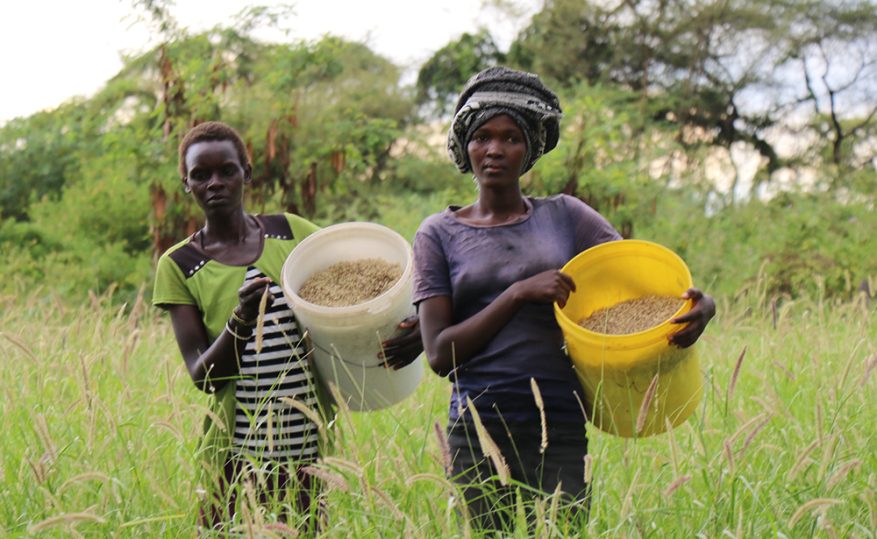The introduction of kitchen vegetable gardens, promotion of enriched food crops combined with extensive awareness training delivered largely through womens’ groups has dramatically reduced childhood malnourishment in a remote part of northern Kenya.
Studies carried out on the impact of Self Help Africa’s work with 60,000 households in Baringo County found that childhood ‘stunting’ – a condition where the body and brain of infants is negatively affected by poor nutrition – was reduced by 50% thanks to the work that was implemented.
Over a five-year period the Baringo Resilience Project sought to improve crop diversity and diets, reduce seasonal food shortages, and improve harvesting, storage and income generating opportunities for farming families.
As a result of the work,
- The number of infants categorised as ‘stunted’ as a result of inadequate nutrition in their diet in Baringo reduced from 3 out of 10 to 1.5 children in 10 at the end of the five year project cycle.
- 80% of those surveyed had established ‘kitchen vegetable gardens’
- 68% had received livestock (cattle, goats, sheep or poultry)
- Cultivation of nutrient rich crops that offered a food alternative to the traditional staple, maize (corn), had increased significantly : (including beans by 40%, sweet potato by 23%, millet by 28% and groundnuts by 11%).
- Training programmes had increased childhood breastfeeding of infants over six months old from 68% to 76%, and
- 78% of women of reproductive aged (15-49 years) were reported to now have a diet that provided the minimum dietary diversity.

